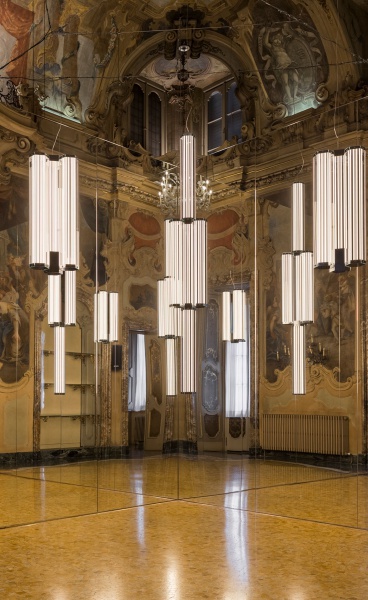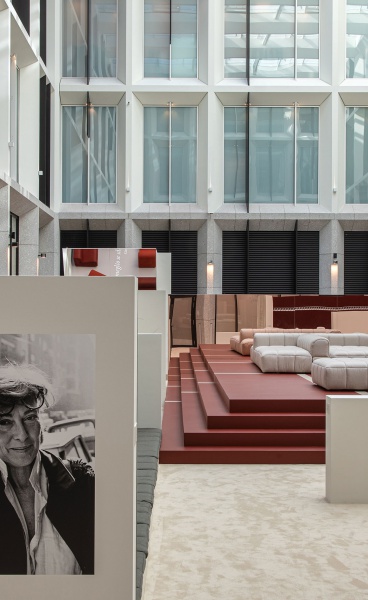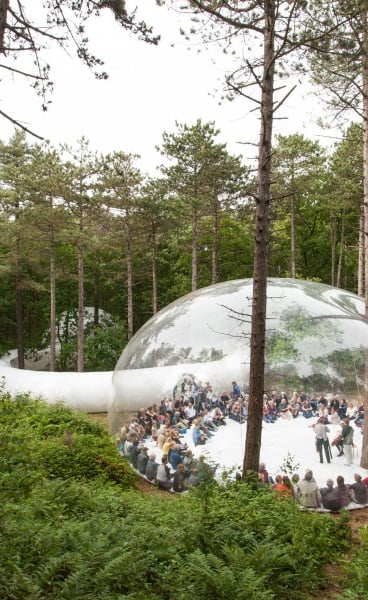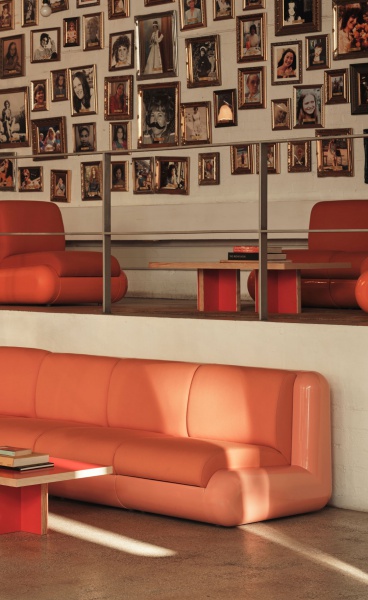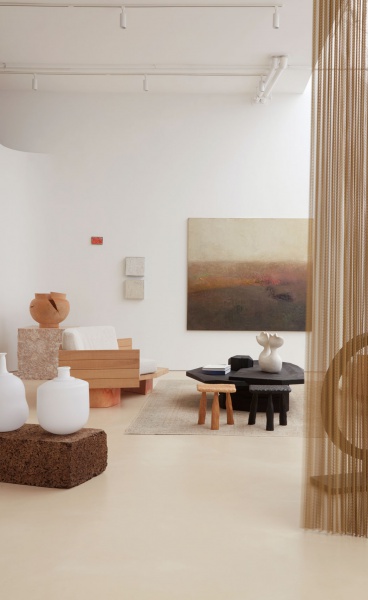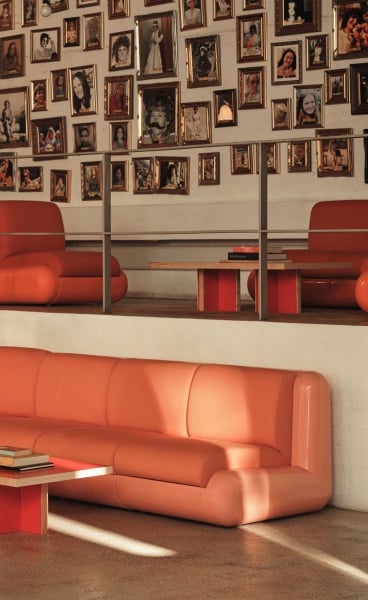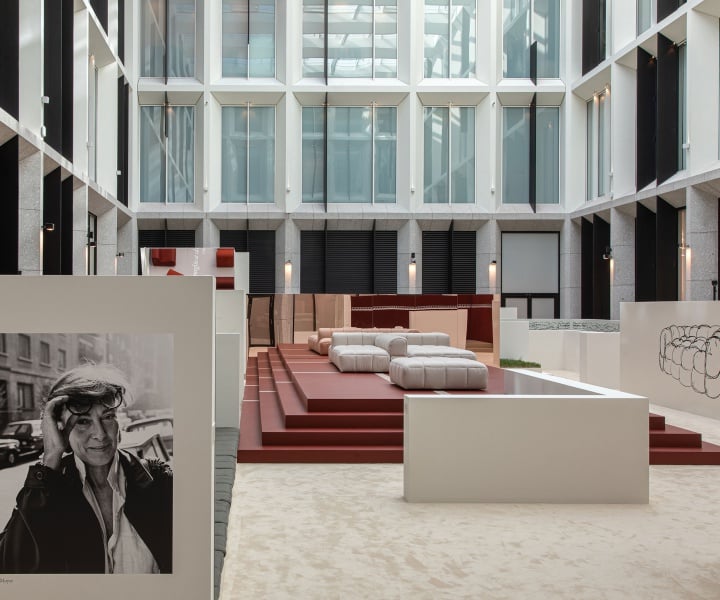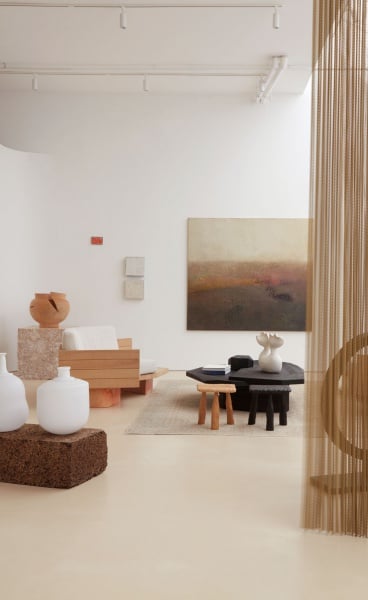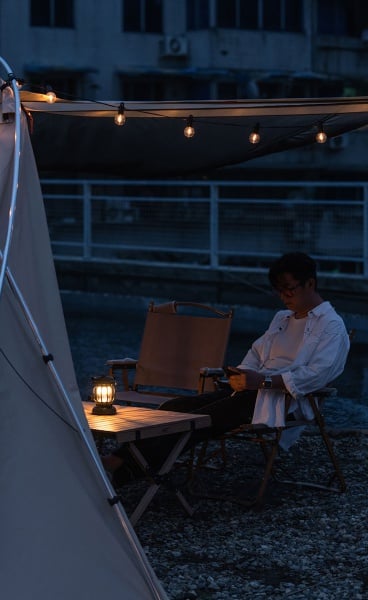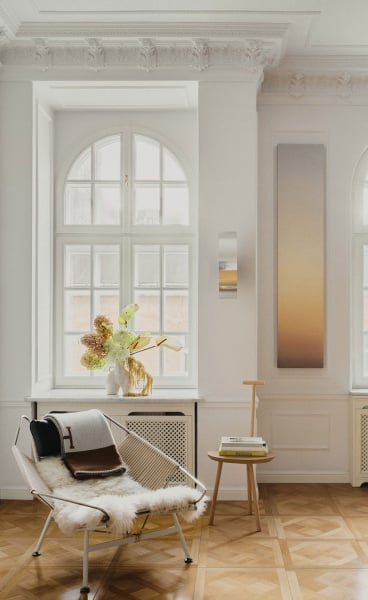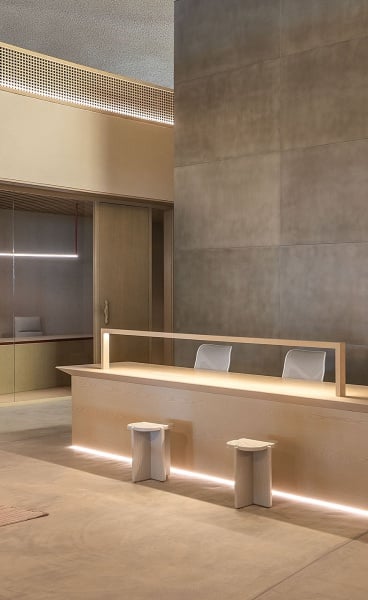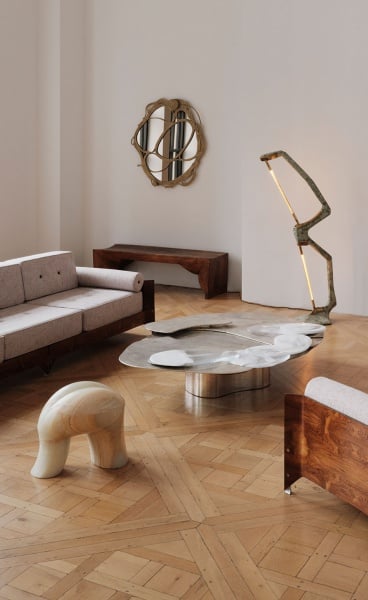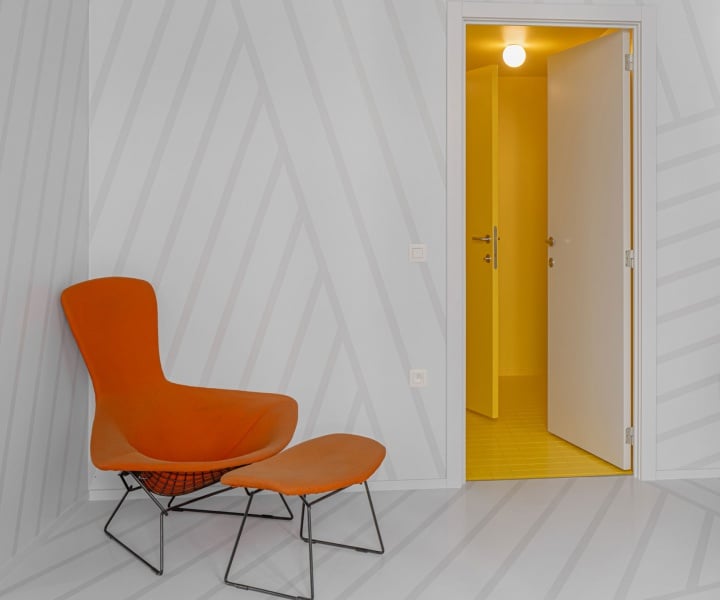Project Name
Magy Upper ApartmentPosted in
Interior DesignLocation
Interior Designer
Atelier tao+cArea (sqm)
45Completed
October 2022| Detailed Information | |||||
|---|---|---|---|---|---|
| Project Name | Magy Upper Apartment | Posted in | Interior Design | Location |
Shanghai
China |
| Interior Designer | Atelier tao+c | Area (sqm) | 45 | Completed | October 2022 |
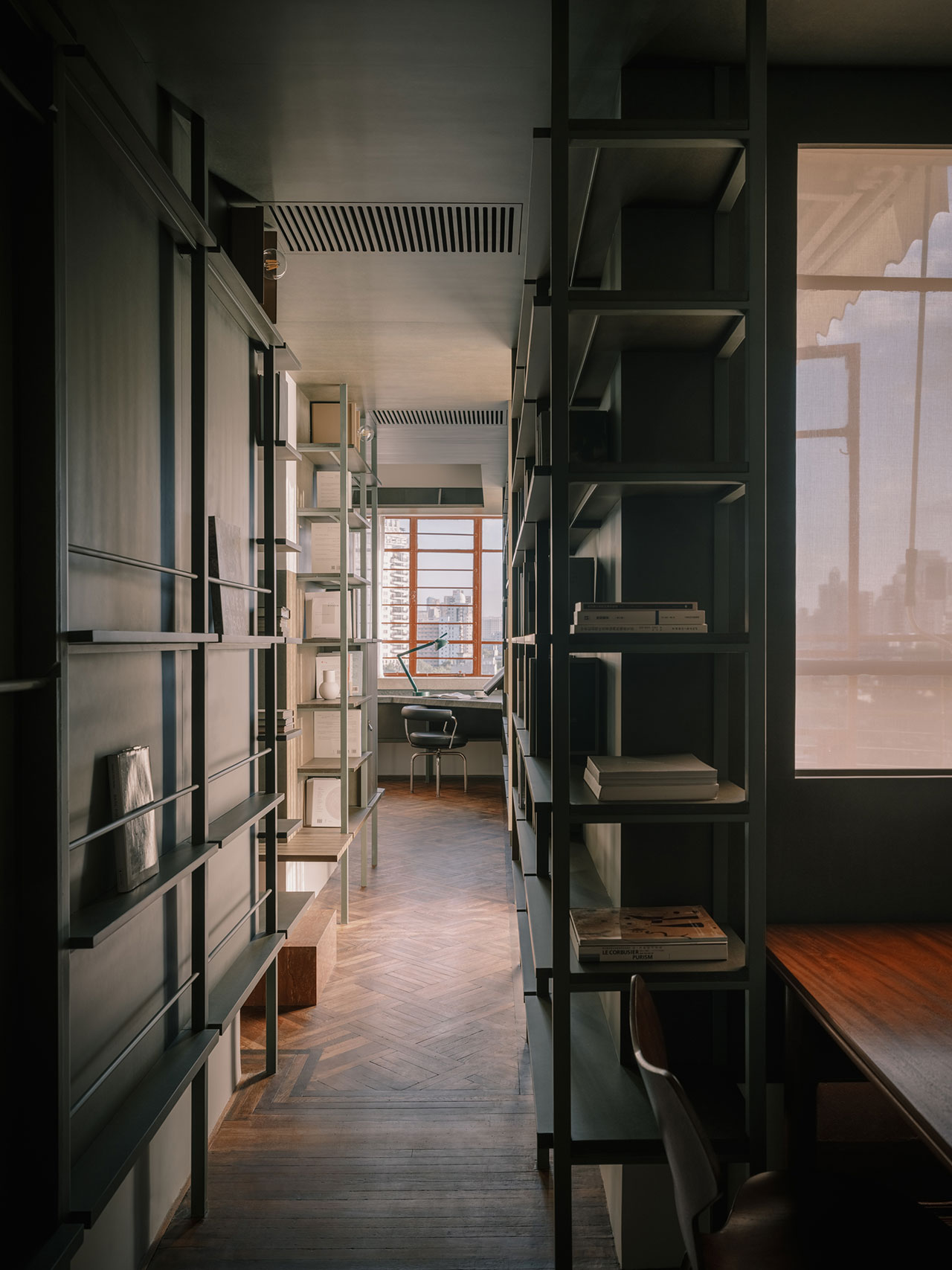
Photography © Wen Studio.
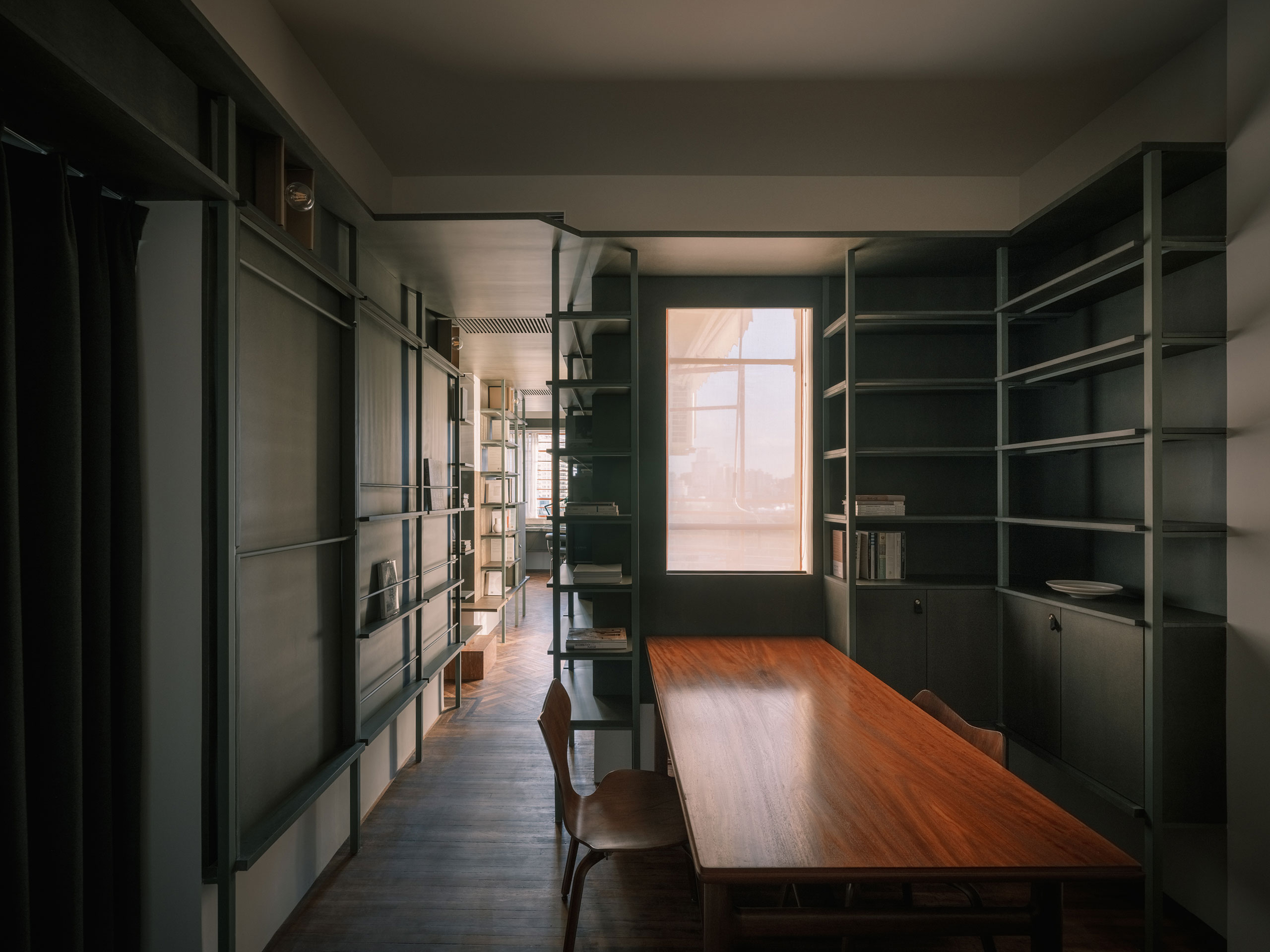
Photography © Wen Studio.
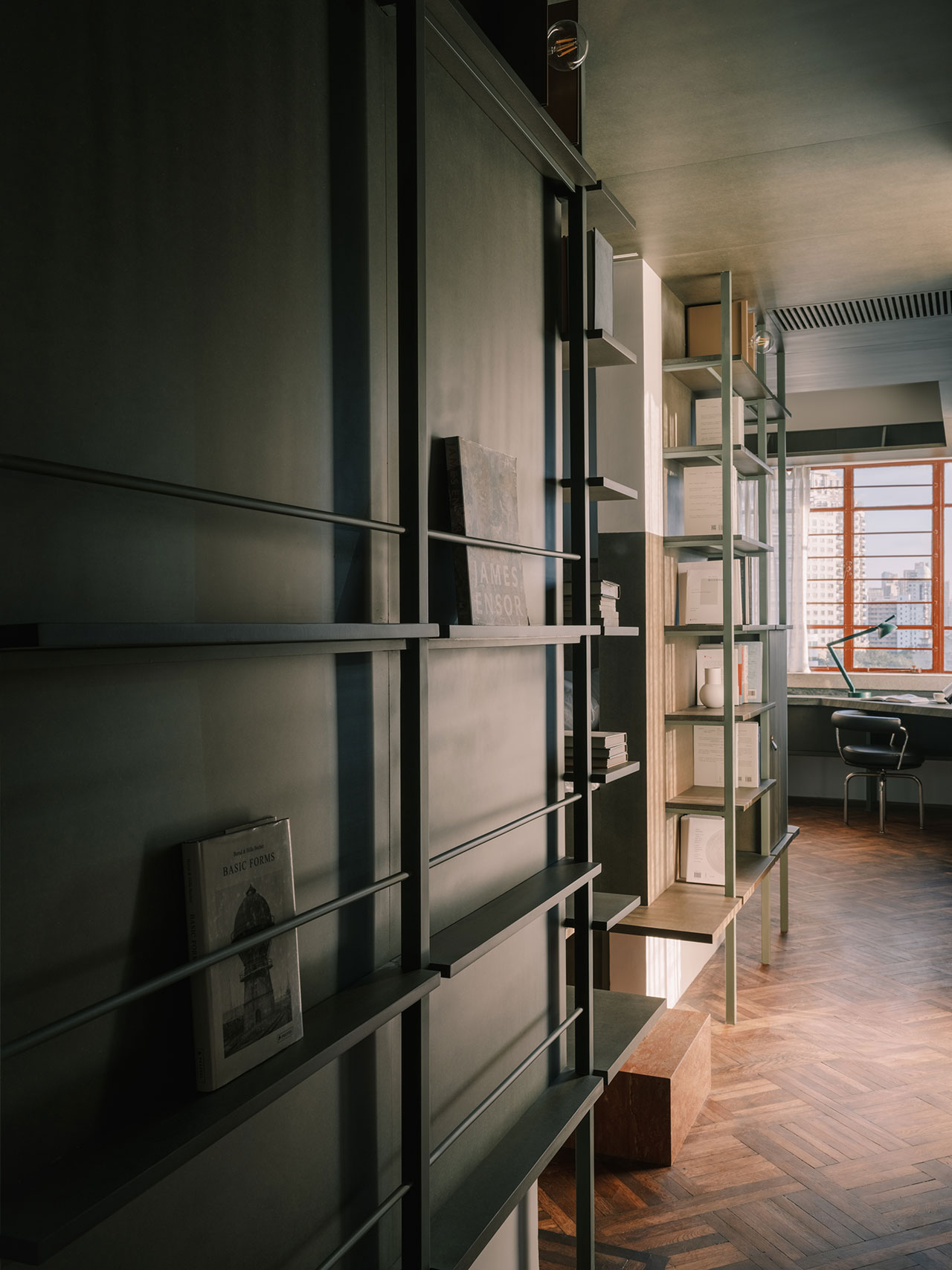
Photography © Wen Studio.
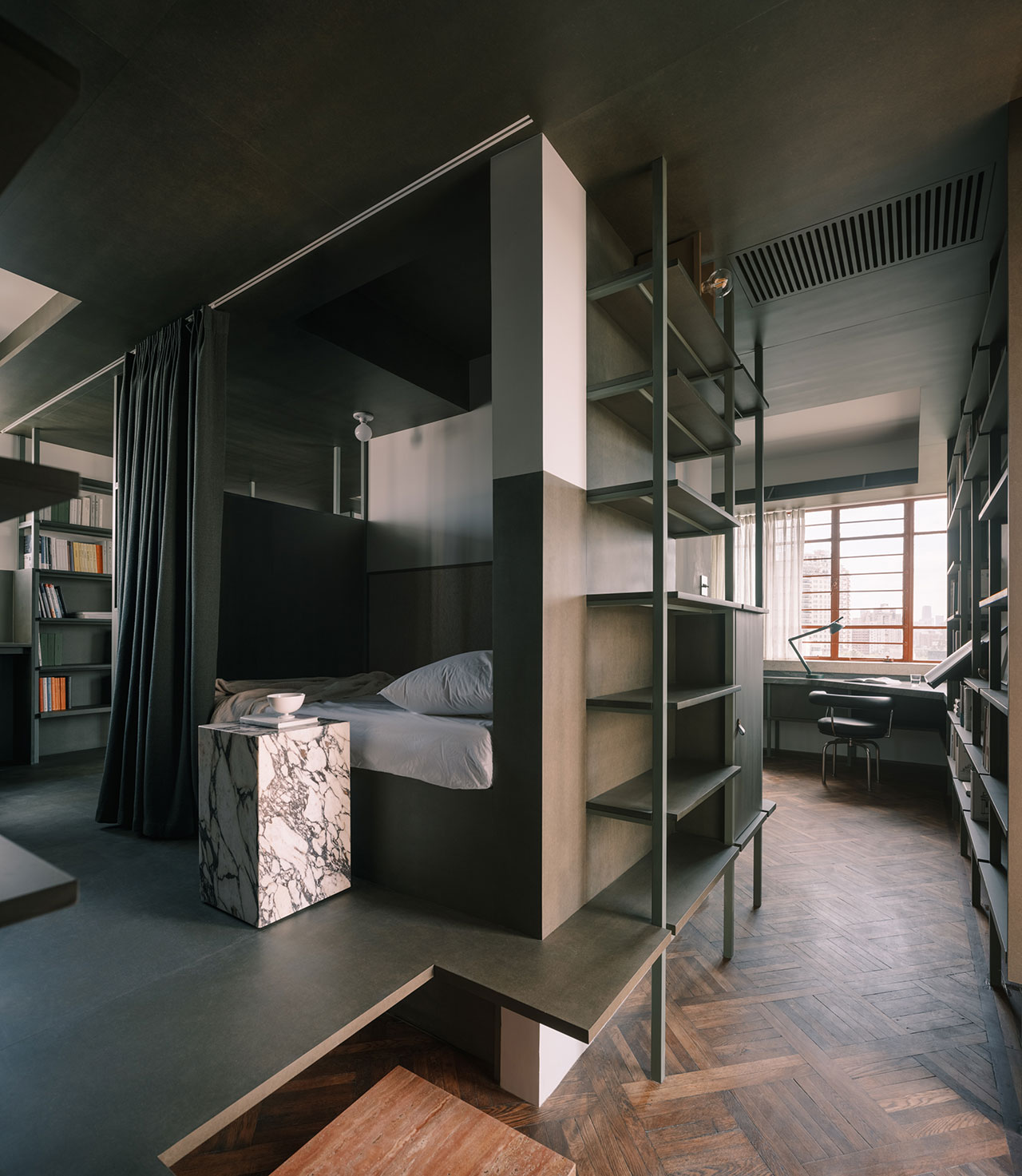
Photography © Wen Studio.

Photography © Wen Studio.
The team drew inspiration from Czech writer and critic Karel Teige’s influential book on architecture, “Minimum Dwelling”. One of the most important figures of avant-garde modernism during the 1920s and 1930s, Teige wrote the book as a blueprint for a new way of living, exploring the role of modern architecture in planning, design, and construction new dwelling types for the working class. In it, he defined the ‘minimum dwelling’ as a form of domestic space organised around two poles, the individual cell and communal facilities. For Atelier tao+c, the property’s vibrant neighbourhood takes on the role of the latter, allowing the apartment to be designed as a monastic cell.
Leaving the small kitchenette and bathroom intact, the team radically reconfigured the rest of the apartment into a fluid space where the sitting, dining and sleeping zones flow into one another. A key part of the new layout is the custom-designed shelving system that incorporates most of the apartment’s furnishings, from bookshelves, cabinets and desks, to a raised platform built specifically for the bed. Painted in a deep green hue, the muti-functional structure both demarcates and unifies the independent yet interconnected living zones.
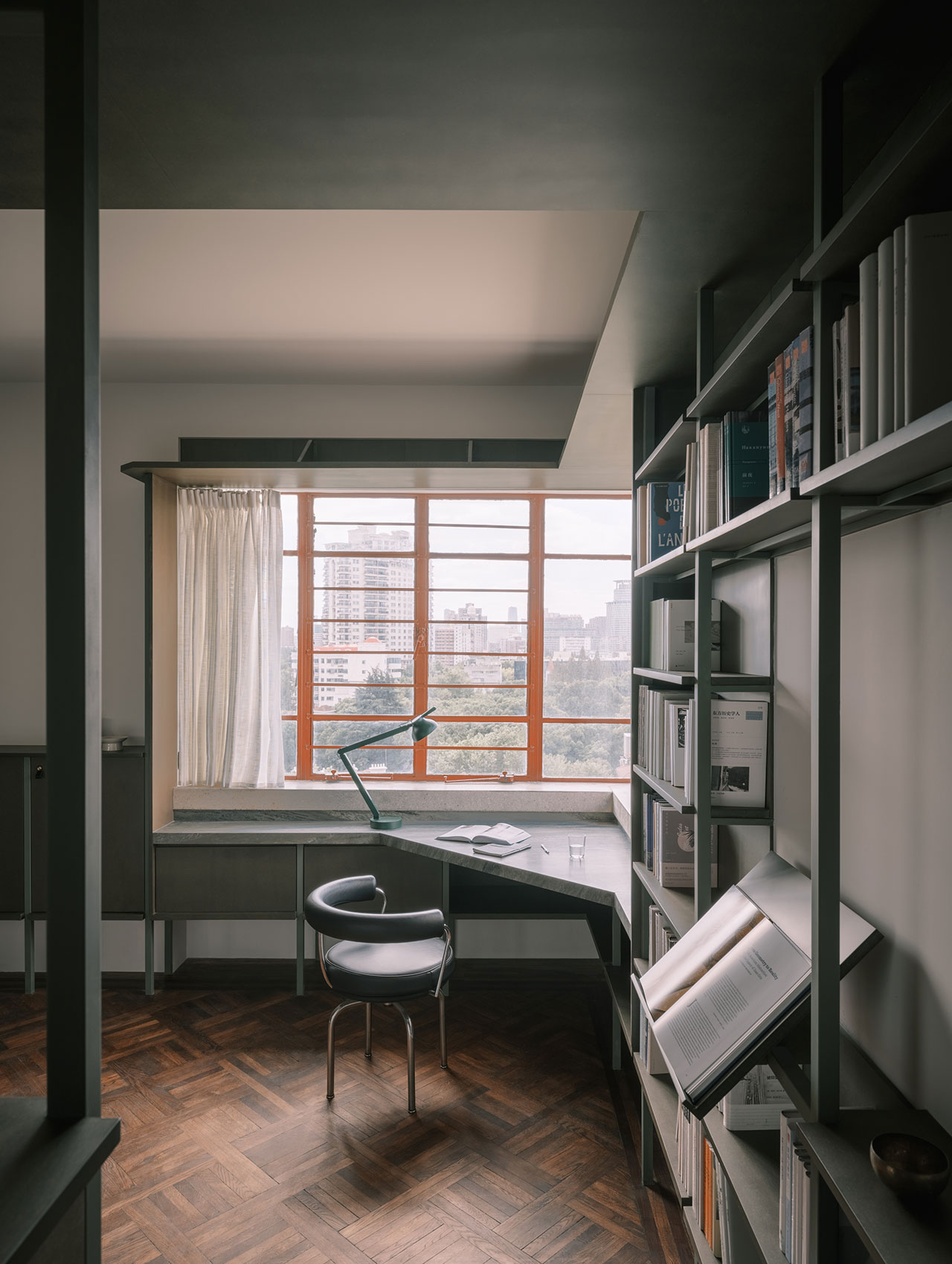
Photography © Wen Studio.
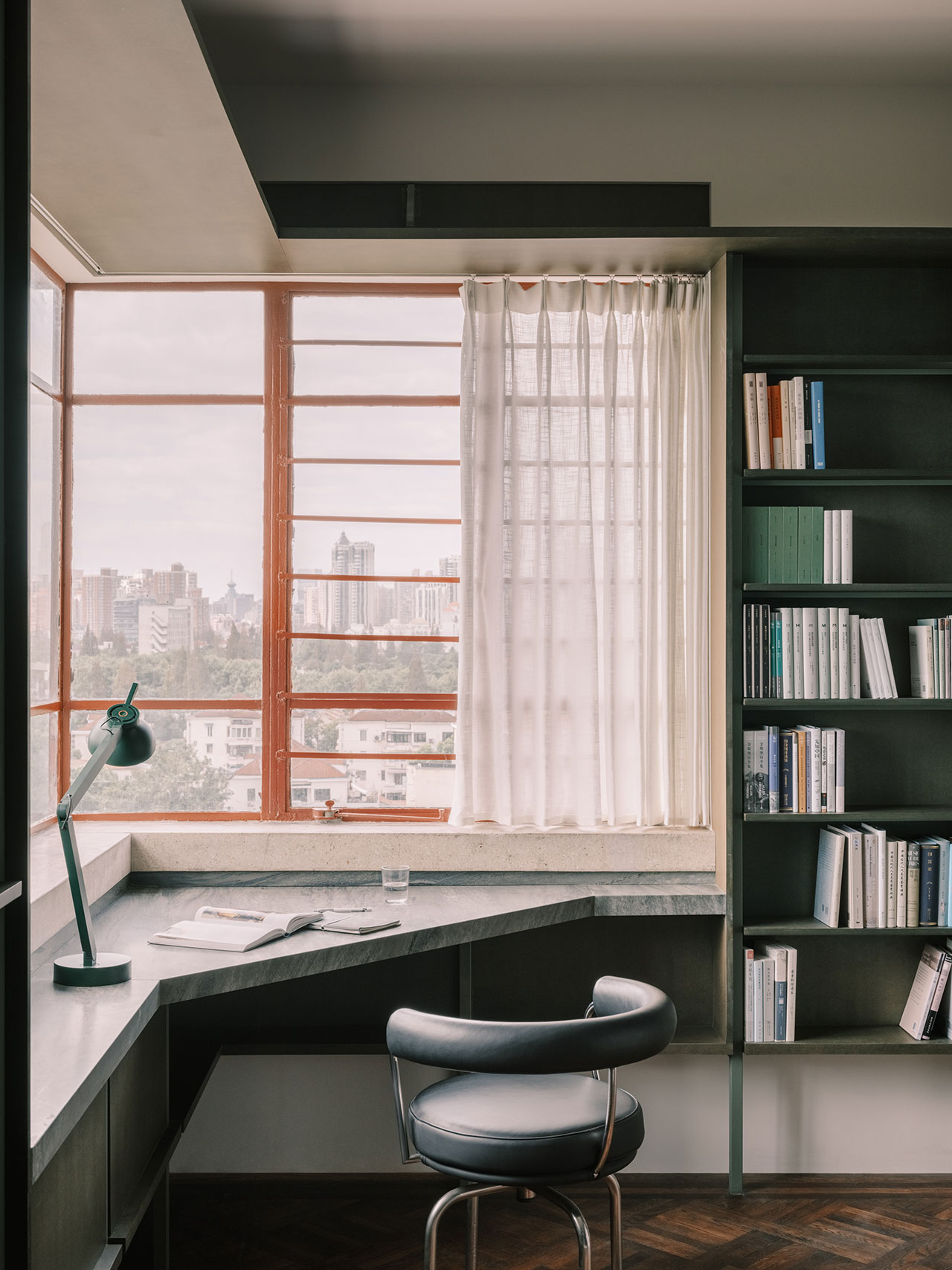
Photography © Wen Studio.
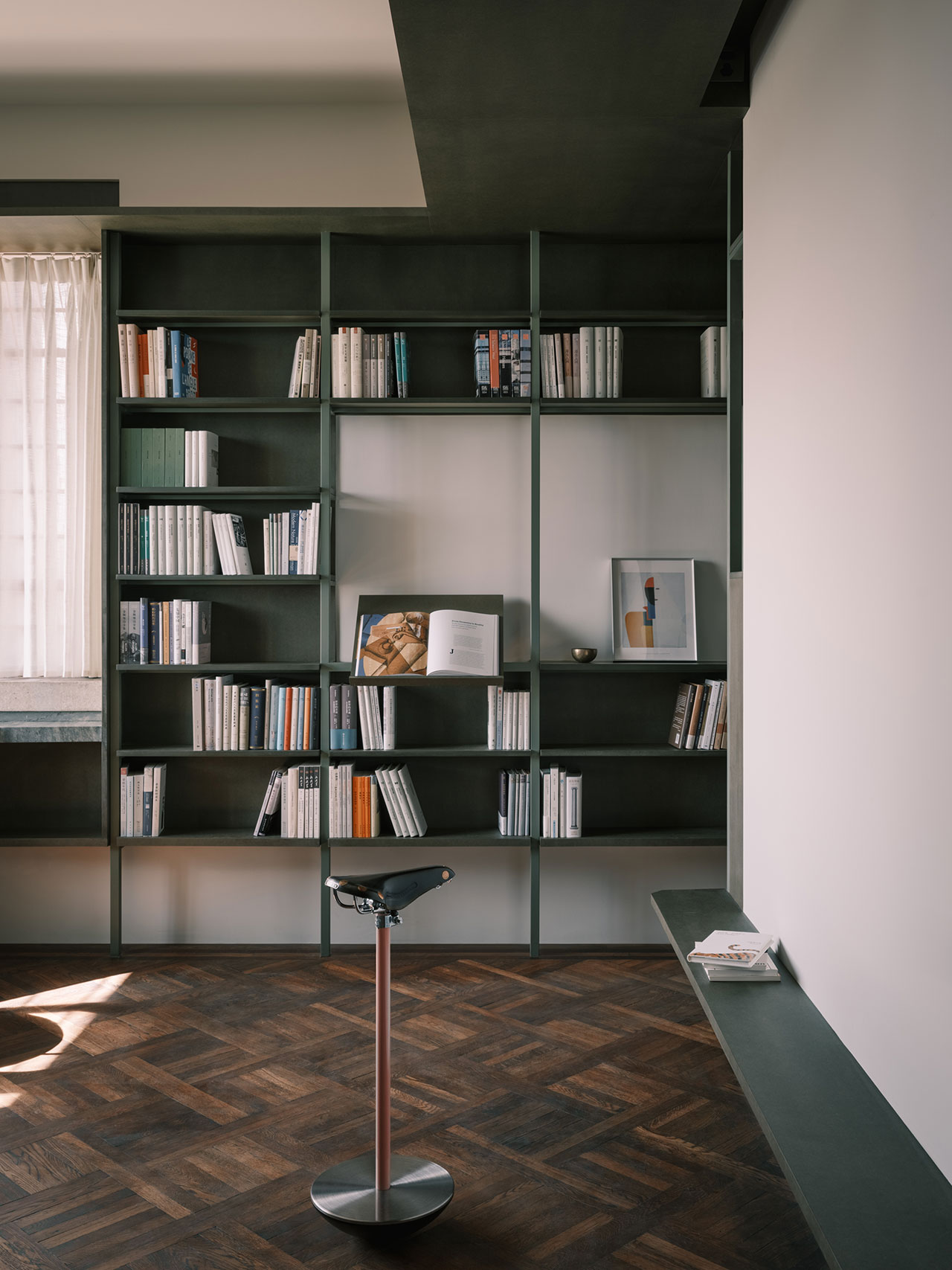
Photography © Wen Studio.
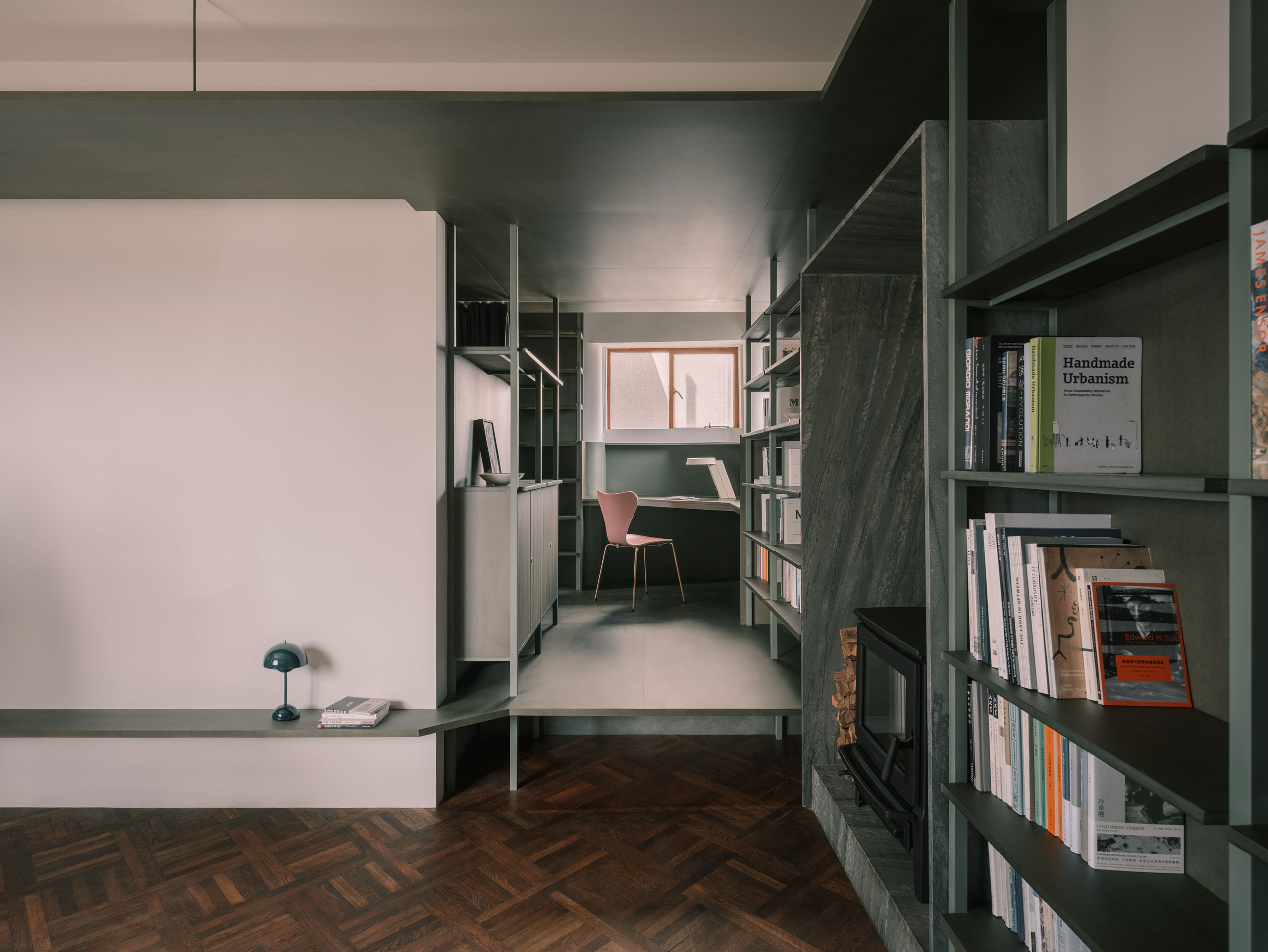
Photography © Wen Studio.
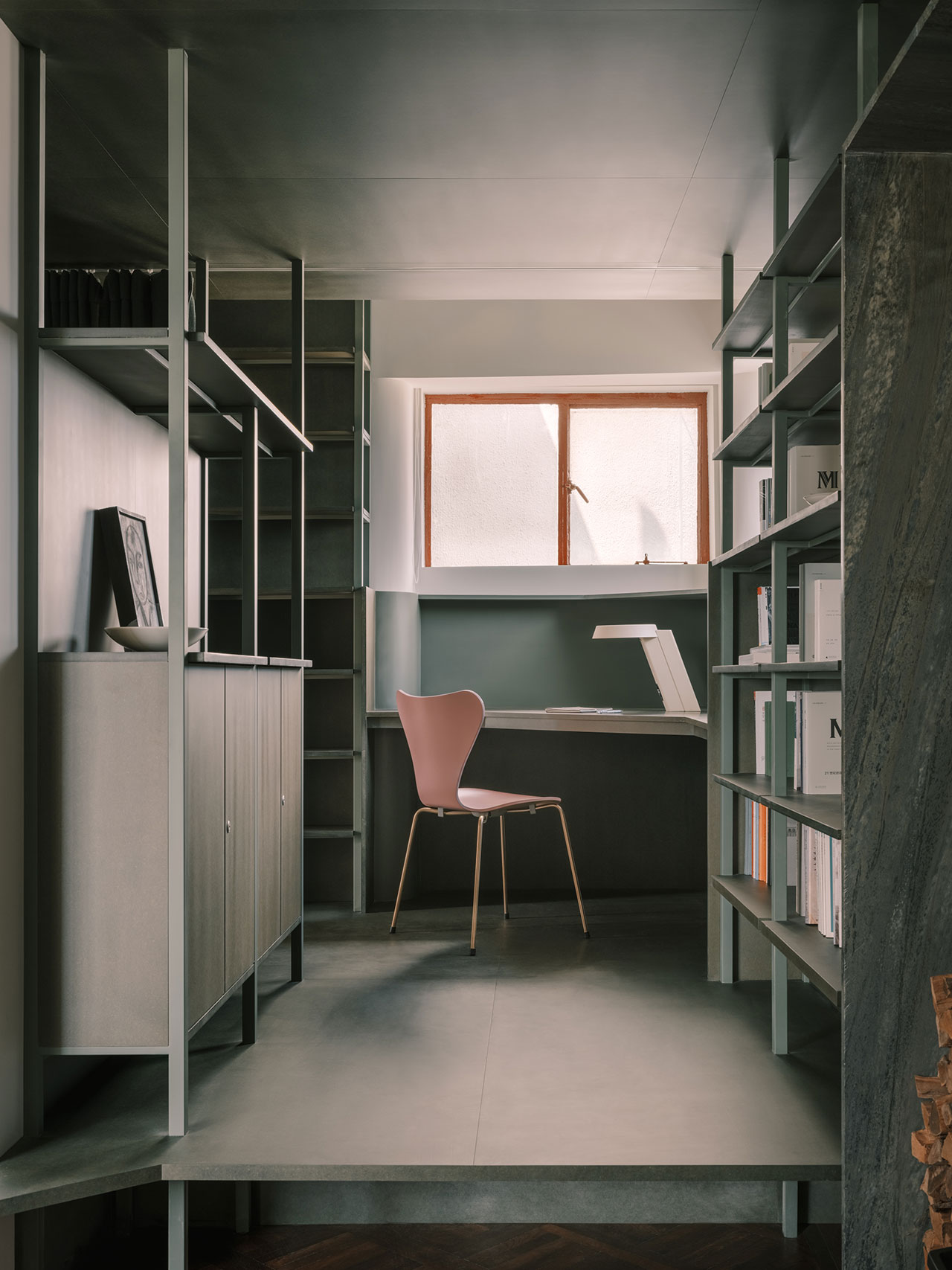
Photography © Wen Studio.
Known for their use of humble materials and simple construction techniques with precise detailing, Atelier tao+c prefabricated and assembled the furnishing system, consisting mainly of a slender steel structure and MDF boards, on site. Barely touching the floor, the light-weight structure was purposely designed to keep the apartment’s historic building fabric intact, most notably in this case, the property’s original basketweave teakwood parquet flooring. Incorporating two work areas, including a small intimate one in the bedroom and a larger one with panoramic city views in the living zone thanks to the apartment’s corner windows, one is constantly reminded of both the juxtaposition and proximity between the public and the private domain in a dense urban environment such as Shanghai’s.
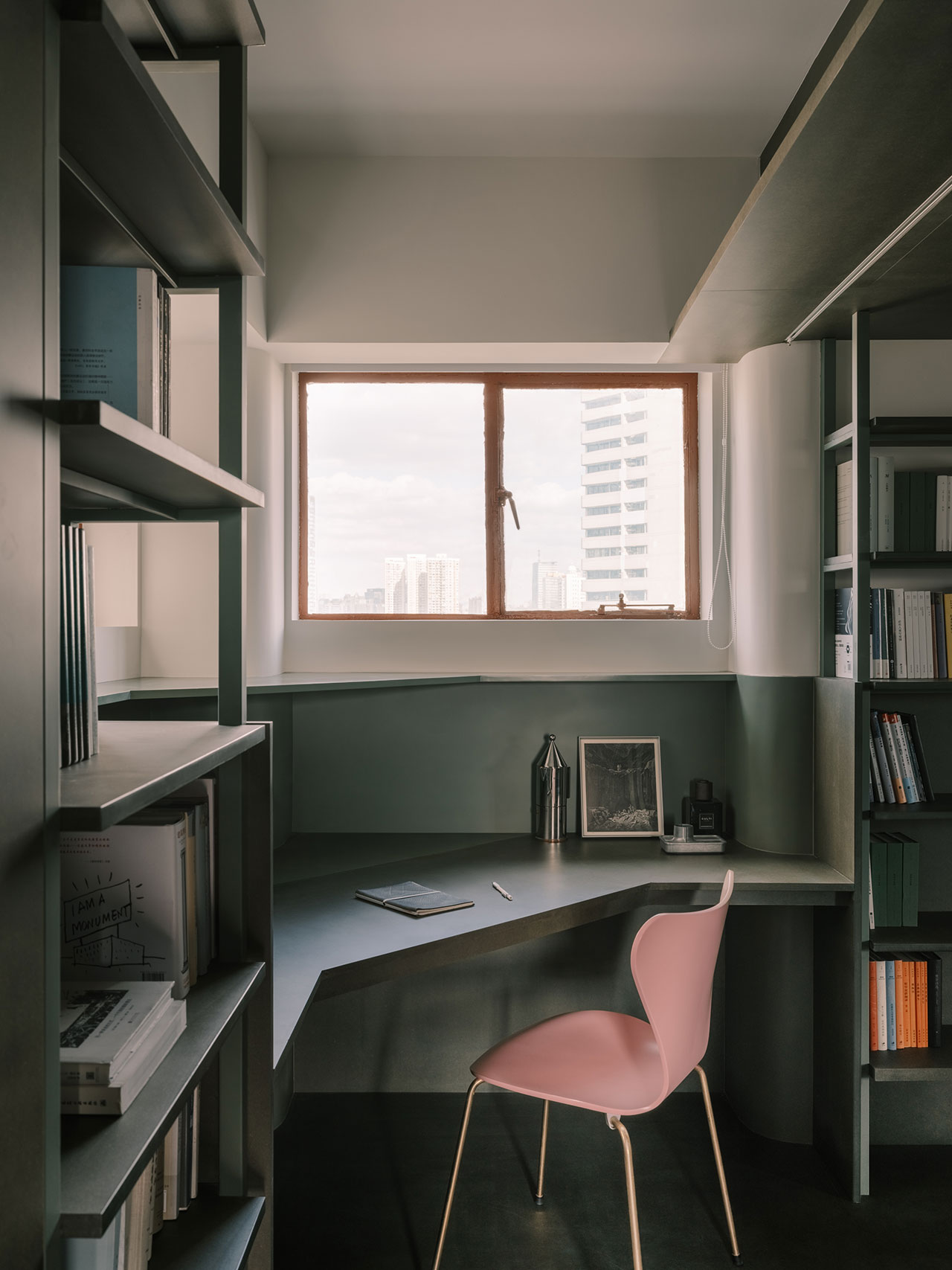
Photography © Wen Studio.
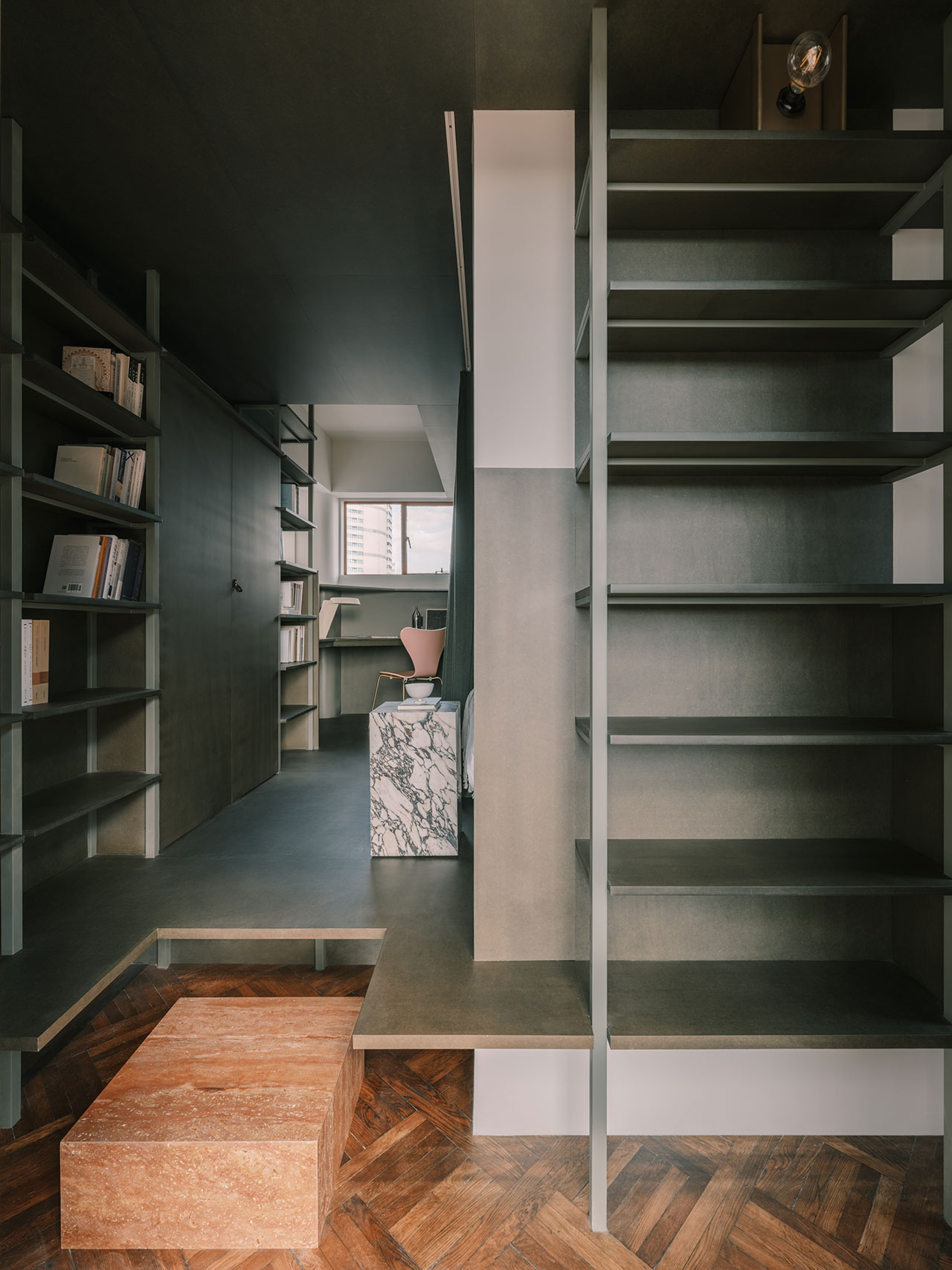
Photography © Wen Studio.

Photography © Wen Studio.
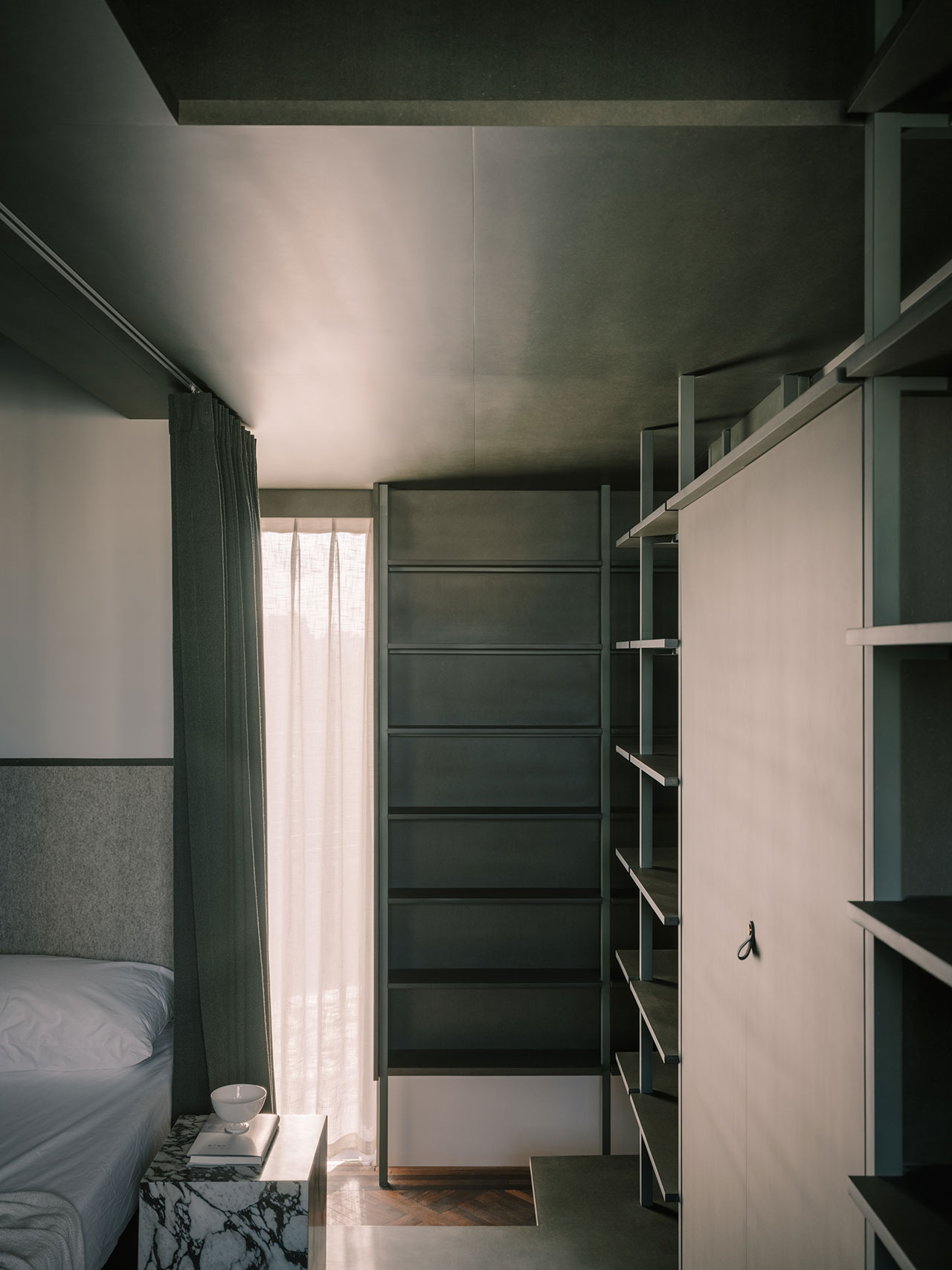
Photography © Wen Studio.
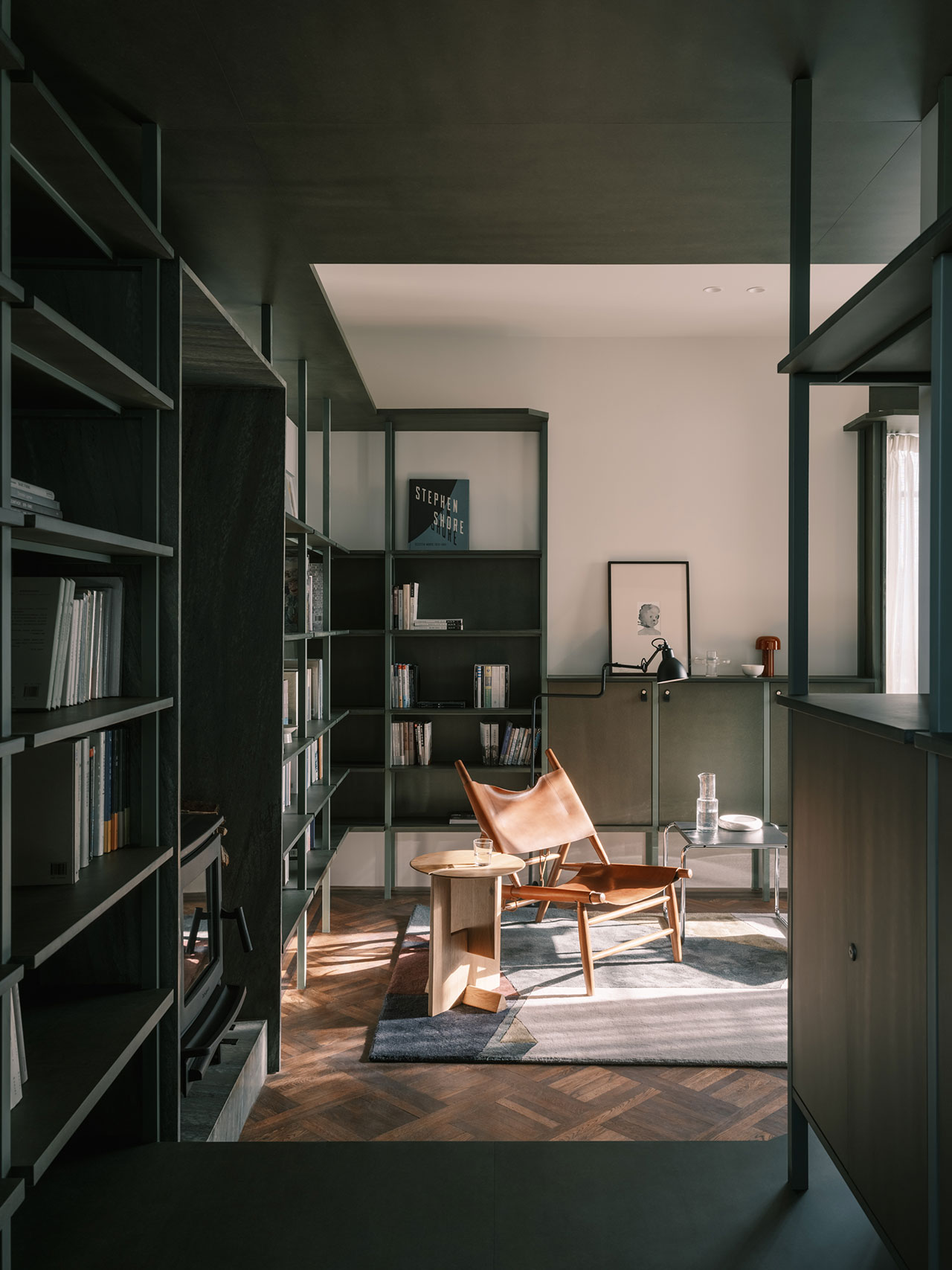
Photography © Wen Studio.
